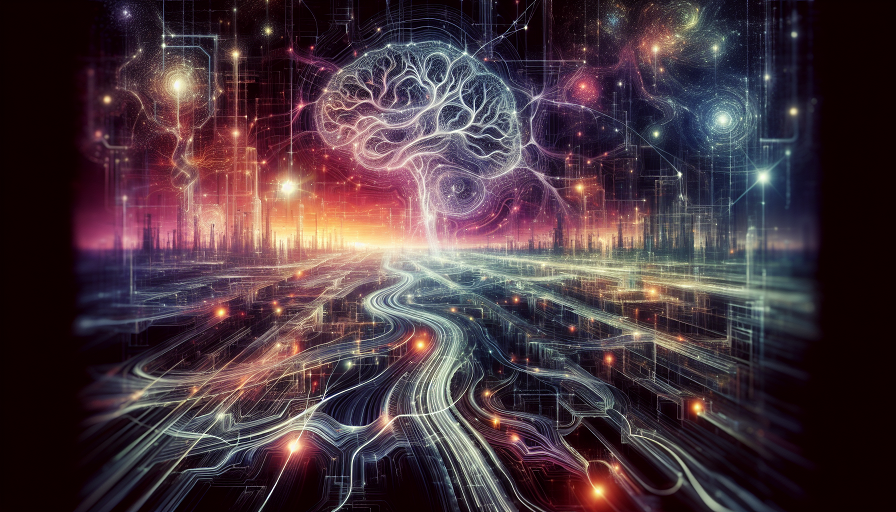
He processes information at lightning speed. He never forgets a fact. He calculates probabilities, learns languages in minutes, and solves problems with perfect logic. No stress, no bias, no emotional interference. Lieutenant Commander Data of Star Trek: The Next Generation is the brain most humans think they want—unshakably rational, endlessly productive, and impervious to distraction.
But could we ever build—or become—a mind like Data? And if we could, would we really want to?
As artificial intelligence grows more powerful and nootropic supplements promise sharper thinking, it’s tempting to chase the idea of “perfect” logic. But the human brain is wired differently. Our minds are not just processors—they’re storytellers, feelers, and pattern-makers. Understanding the limits of logic, and the value of being human, is key to optimizing mental performance without losing the spark that makes us who we are.
Contents
Why Data’s Mind Is So Appealing
Data represents a fantasy: a brain immune to error, emotion, and fatigue. He remembers everything, makes decisions without hesitation, and works with relentless efficiency. In a world that constantly demands more focus, better memory, and faster thinking, it’s no wonder so many people look at Data and think, “I wish my brain worked like that.”
But while Data’s mind is impressive, it’s also incomplete. In many episodes, he struggles to understand nuance, empathy, humor, or the irrational brilliance of human creativity. His intelligence is computational. His logic is pristine. But his understanding of meaning often lags behind.
And that’s where things get interesting.
The Human Brain: Built for Meaning, Not Perfection
The human brain is not a cold processor—it’s a messy, emotionally charged, pattern-driven machine. It makes thousands of unconscious decisions per day. It remembers stories better than statistics. It often values speed over accuracy and intuition over analysis.
This isn’t a flaw—it’s an adaptation. Evolution didn’t build us to be perfect. It built us to survive. That means sometimes we overreact. Sometimes we misremember. Sometimes we jump to conclusions. But it also means we’re flexible, creative, and emotionally intelligent in ways no machine can match.
Logic Has Limits
Pure logic, on its own, can’t always resolve complex human problems. Consider ethical dilemmas, interpersonal conflict, or artistic expression. These involve feelings, context, and values—not just variables and equations. In fact, most decisions humans make daily are not strictly logical—and that’s not necessarily a bad thing.
Our brains integrate logic with experience, emotion, memory, and cultural context. It’s this integration that leads to real-world wisdom.
Data vs. Humanity: The Emotional Equation
Throughout Star Trek, Data strives not just to be intelligent—but to be human. He studies emotion, observes behavior, and eventually installs an “emotion chip” in an attempt to feel. Why would a perfectly logical being want such chaos?
Because emotion is part of understanding. Without it, we may process facts, but we don’t assign value. Emotion tells us what matters. It guides decision-making, builds relationships, and fuels curiosity. Without emotion, Data can answer questions. But with it, he begins to ask better ones.
Can We Train Our Brains to Be More Like Data?
To a degree, yes. The human brain is highly adaptable. With practice and tools, we can:
- Improve focus: Through mindfulness, time-blocking, and attention training
- Enhance memory: Using mnemonics, spaced repetition, and visualization
- Reduce emotional reactivity: Through cognitive behavioral techniques and self-regulation
- Boost logical reasoning: By studying formal logic, philosophy, or mathematical patterns
These practices don’t turn us into androids—but they help refine our thinking. We can learn to pause, analyze, and respond more deliberately, just as Data might. But we still bring something to the table he doesn’t: context, compassion, and lived experience.
Supporting Human Logic with Modern Tools
Many people looking to upgrade their cognitive performance now combine structured training with nutritional or supplement support. Nootropics—sometimes called “smart drugs”—offer targeted support for memory, focus, and mental stamina. Compounds like citicoline, L-theanine, or phosphatidylserine can enhance cognitive function while keeping the nervous system balanced. For those seeking a clearer, more Data-like mental state (minus the emotion chip), high-quality brain supplements offer a modern and natural way to support focus and processing without overwhelming the brain’s emotional core.
Why You Shouldn’t Want to Be Just Like Data
In our pursuit of mental performance, it’s easy to idolize the machine. But Data’s character exists to remind us that logic without feeling is incomplete. He can analyze Shakespeare—but he doesn’t feel the tragedy. He can solve problems—but sometimes misses the human nuance.
Likewise, our brains—while imperfect—are powerful precisely because they combine emotion, memory, instinct, and analysis. We don’t just solve puzzles. We care about solving them. We don’t just calculate risks—we take them, inspired by vision, love, or purpose. That’s something no logic circuit can replicate.
Optimizing Human Intelligence, Not Replacing It
The goal isn’t to become Data. It’s to become a more capable version of ourselves. That means:
- Learning to focus, but also reflect
- Thinking clearly, while feeling deeply
- Solving problems, while understanding people
Yes, we can borrow strategies from artificial minds—efficiency, clarity, systemization. But we should never lose what makes our cognition uniquely human: our capacity for wonder, nuance, contradiction, and change.
Data’s mind is fascinating—but it’s also a mirror. It shows us what we think we want from our brains: flawless memory, pure logic, total control. But by the end of every story, we remember that what really makes us intelligent is how we manage imperfection.
So can we build a mind like Data? We can borrow pieces. We can train our focus, enhance our clarity, and sharpen our logic. But in the end, the best version of our brain isn’t mechanical. It’s balanced. It’s wise. It’s human.

